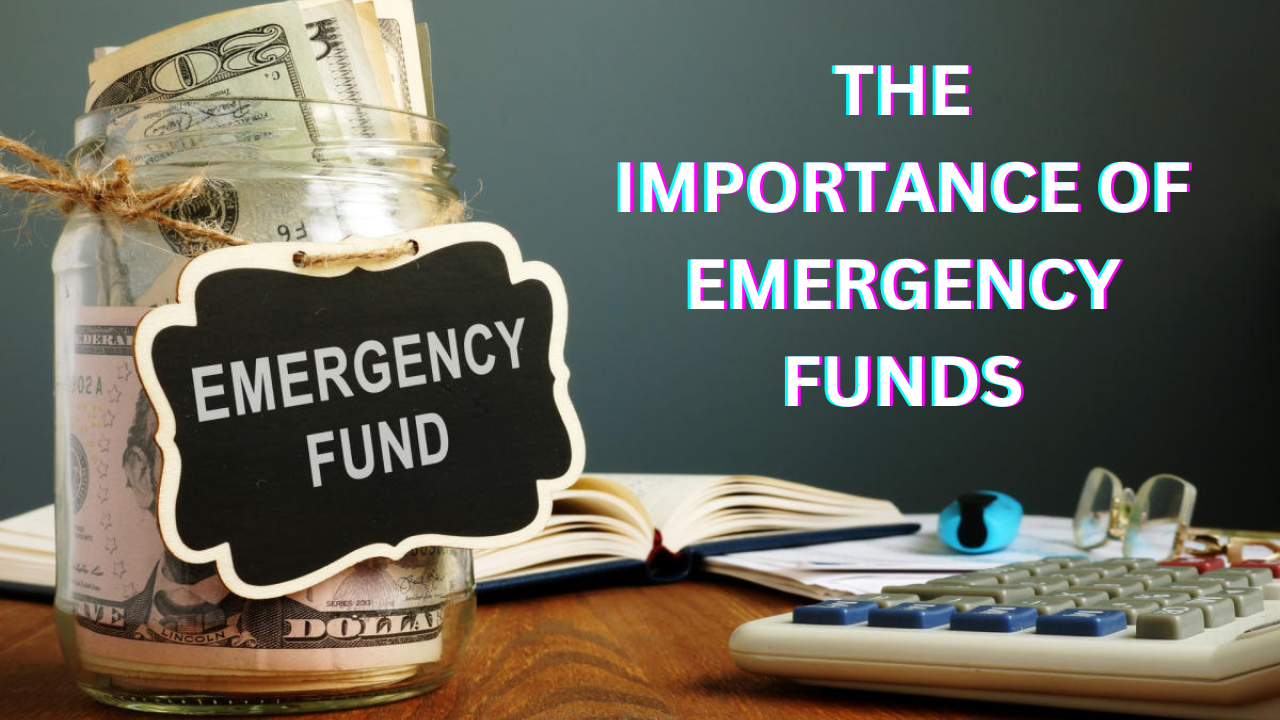An emergency fund is a financial safety net that helps you handle unexpected expenses without stress life is unpredictable and situations like medical emergencies, car repairs or sudden job loss can arise when least expected without savings set aside these challenges can lead to financial strain forcing people to rely on credit cards or loans which only add more burden in the long run having an emergency fund provides peace of mind and financial stability it acts as a cushion that allows you to cover urgent expenses without disrupting your daily budget or long-term financial goals even starting small like saving a portion of your income each month can make a big difference over time.
Experts recommend setting aside at least three to six month worth of living expenses to stay prepared for any unforeseen events building an emergency fund requires discipline but the benefits outweigh the effort it not only reduces financial stress but also gives you greater control over your money instead of worrying about how to pay for an unexpected expense you can focus on finding solutions with confidence an emergency fund is a key part of financial security helping you stay prepared for life throws your way.
What is an Emergency Fund?
An emergency fund is a special savings account set aside to cover unexpected expenses that life may throw your way it acts as a financial safety net helping you handle urgent situations like medical bills car repairs home maintenance or even sudden job loss without falling into debt life is full of surprises and without an emergency fund you might find yourself relying on credit cards loans or borrowing money from others which can create long-term financial stress having a dedicated fund ensures that you can manage these challenges smoothly without disrupting your regular budget or future financial goals.
Experts recommend saving at least three to six month worth of living expenses but even starting small can make a huge difference the key is to build the fund consistently by setting aside a portion of your income each month it important to keep this money in an easily accessible account separate from everyday spending so you can use it whenever needed an emergency fund provides financial security peace of mind and confidence knowing that you are prepared for life uncertainties.
Benefits of Having an Emergency Fund:
Having an emergency fund comes with many benefits that can significantly improve your financial stability and overall well-being one of the biggest advantages is peace of mind knowing that you have money set aside for unexpected expenses like medical bills, car repairs or sudden job loss of feeling anxious or scrambling for funds you can handle emergencies smoothly without relying on credit cards, loans or borrowing from family and friends this prevents debt from piling up and keeps you financially secure an emergency fund also allows you to stay on track with your long-term financial goals such as buying a home investing or saving for retirement without interruptions.
It gives you the freedom to make better decisions without the pressure of financial stress having savings for emergencies provides flexibility in case of career changes or personal challenges allowing you to take time to find the right job or explore new opportunities without rushing into decisions for financial reasons even if it takes time to build every small step toward creating an emergency fund strengthens your financial foundation in the end having an emergency fund is one of the smartest ways to protect yourself from life uncertainties while staying in control of your money.
How much should you save?
The amount you should save in your emergency fund depends on your personal financial situation but a general rule of thumb is to aim for three to six month worth of living expenses this can give you enough cushion to cover essential costs such as rent, utilities food, and transportation in case of unexpected events like job loss or medical emergencies if you have a stable job or multiple income sources three month worth might be sufficient if your income is less predictable or you have dependents to care for aiming for six months or more is a good idea.
The key is to focus on what makes you feel comfortable and secure start small if needed saving a portion of your income each month and gradually work your way up to your goal the important thing is to make consistent progress even if it just a little at a time it better to have some savings than none at all as your income grows or your expenses change you can adjust your savings goal accordingly but having a solid emergency fund in place gives you the peace of mind to face life surprises with confidence.
Where to Keep your Emergency Fund:
Where you keep your emergency fund is just as important as how much you save it essential to store the money in a place where it easily accessible but not too tempting to spend a good option is a high-yield savings account which offers better interest rates than a regular savings account while still providing quick access to your funds when you need them these accounts are typically offered by banks or credit unions and allow you to transfer money easily to your checking account in an emergency some people also consider using a money market account.
It important to choose an account that is liquid meaning you can access the funds quickly without penalties or fees as emergencies can happen at any time avoid investing your emergency fund in stocks or long-term investment accounts because they may carry risks and require more time to access while it tempting to put it somewhere that might earn more having your emergency fund in a safe accessible place is the priority having your savings in the right place ensures that you can cover unexpected expenses without hesitation or extra stress.
